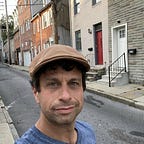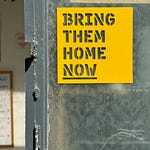I don’t know about you; I don’t get all that choked up when actors die. But Robert Redford’s passing last month affected me. I fell in love with Redford’s acting in 1992. You see, I was born in ‘76, the year All the President’s Men hit theaters. Butch Cassidy, The Sting, and The Way We Were were already behind him. My first recollection of him was as an 8-year-old boy watching Roy Hobbs round the bases on the big screen in Barry Levinson’s The Natural, after swinging for the fences, and as the lights explode and sparks descend to the field.
But it was Sneakers that made me fall in love with Robert Redford. I was a Junior in High School and Redford was already 56 by the time I settled in to watch the movie about aging fugitive computer hackers and the dangers of government surveillance. The movie featured an all-star cast including Ben Kingsley, Dan Aykroyd and Sidney Poitier. The scene that sticks with me all these years later is from the end of the film where, in exchange for their silence, our heroes secure a bunch of absurd payoffs from NSA Operations Director Bernard Abbott (Abbott having been played by none other than James Earl Jones, who also tragically left us just one year ago September). Redford gets his name cleared. Poitier and his wife get a trip to Tahiti. Aykroyd gets a Winnebago. But when it’s Whistler’s turn (the blind character played by David Straithairn), he demands “peace on earth and goodwill toward men.” Abbott in Jones’ resonant baritone is indignant: “We are the United States Government! We don’t do that sort of thing.”
“Rabbi Hanina Sagan ha-kohanim said: pray for the welfare of the government, for were it not for the fear of it, every man would swallow his neighbor alive” (Avot 3:2). According to the Shulkhan Arukh, Rabbi Hanina, second in line to the High Priest, was executed by the Roman Empire (O.H. 580). Our Sages understood something important about power and authority. Governments are necessary, societies need structure and laws to protect citizens from outside forces and from one another. But Chazal also understood governments can become corrupt and dangerous. Sometimes they are the ones not protecting but scapegoating the stranger, disappearing the dissident, swallowing people alive.
“We are the United States Government! We don’t do that sort of thing.” It all seems a bit wistful now, doesn’t it? I wonder if our high schoolers in the room today even get the joke which hinges on movie-goers’ believing, on some level, our government’s job is to make the world a better place. Redford, of course, cared deeply about the planet. But he’s gone and we are here this Yom Kippur, a day on which we yearn, from the vantage of our unredeemed world, for the possibilities of a better tomorrow. U’v’khen/and so…
וּצְמִיחַת קֶֽרֶן לְדָוִד עַבְדֶּֽךָ, וַעֲרִיכַת נֵר לְבֶן־יִשַׁי מְשִׁיחֶֽךָ, בִּמְהֵרָה בְיָמֵֽינוּ
“May the light of David, Your servant…be kindled speedily in our day.”
Yom Kippur is also a day of liminality and transition, the culmination of the past year as we fully step into the next. In that spirit, it’s not lost on me that this will be my last Yom Kippur here at Beth Am, and my final opportunity to address you, on the High Holy Days, from this bima. I’m not leaving just yet. I have a bunch more torah to teach before I do. There’s a weekend coming up in June for us to say farewell, and I suspect I’ll have some parting thoughts for you then. The dates are in the program, and I hope you’ll mark your calendars! Nevertheless, I have been thinking a great deal about what I’d like to say to you today, given this is my last Yom Kippur sermon.
You may not remember this, and many of you are new since then, but when I came to interview back in February 2010, I began my remarks by confessing I didn’t quite know what to say to you, because we were strangers. But that was over fifteen years ago. We are no longer strangers. We’ve learned, laughed, prayed, protested, traveled, mourned, and grown together. Back then I was concerned about overstepping, making assumptions about what you needed to hear from some young rabbi out of Chicago. Today, I’m less young… and I find myself pondering precisely the opposite. I ask myself, should I say what I think I must?
Truth is, the sermon I feel I must give, is not the sermon I want to. I want to talk about happy things. (Can you talk about happy things on Yom Kippur?) Or Kashrut, whatever! I want to give a “reflective” sermon, or a “looking forward” sermon, or a “what I’ve learned from you crazy people” sermon. But those will have to wait because our country, our very democracy, is teetering, and I cannot pretend that it’s not. To be clear, this is not about party. It’s not about whether I disagree with every single thing this Administration has done. I don’t. This is, quite simply, about the future of our republic. Rabbi Tarfon says, וּבַעַל הַבַּיִת דּוֹחֵק “the Master of the House is knocking” (Avot 2:15). There is a Master of a house greater than the one on Pennsylvania Avenue. Some knocks must be answered. Some doors must be opened.
What I’ve learned from 20 years in the rabbinate, and from my friend and teacher Rheda Becker, is that what we say from this bima is part of sacred ongoing conversation between teachers and students. What I owe you, each time I preach a sermon, is to teach the most authentic torah I can muster, right here and now. Heschel taught, “It takes three things to attain a sense of significant being: God, A Soul, and a Moment. And the three are always here” (1961 White House Conference on Aging). On a different Yom Kippur or in another community, I might have had something else to say. But this is where we are. This moment. My soul. Your Soul. And the Holy One knocking.
On Yom Kippur 2017, I mentioned Sinclair Lewis’s It Can’t Happen Here, his 1935 dystopian novel about the rise of American Fascism. The book features an elected populist leader, playing on white nationalism, expressing disdain for Black folks, scapegoating Jews. The novel begs a question, I said. Can it happen here? My answer then was, unfortunately, yes. As long as people in power can find a good scapegoat, I said, “there is always a chance that the grand and fledgling experiment of American democracy will give way to a more sinister and ancient form of governance.” And I shared that a dear congregant had said to me soon after Trump’s first inauguration: “The elasticity of our democracy is about to be tested.” That congregant was none other than Efrem Potts z”l, our first Beth Am president and my mentor. When Efrem said that in 2017, it was indeed being tested. In January ‘21, it nearly succumbed to an assault on our capitol. Since January of this year, American democracy is being stretched as never before. Even the most elastic things, subject to prolonged and extreme pressure, will break. I shudder to think what Efrem would say now.
When Rabbi Hanina Sagan ha-kohanim said: “pray for the welfare of the government, for were it not for the fear of it, every man would swallow his neighbor alive,” he assumed an iron-fisted authoritarian regime. That’s because he was living under such a regime, a regime that would come to brutally execute him and other venerated Jewish leaders. The great Rabbi Akiva, too, was put to death by the Roman authorities. For what crime? For the crime of learning and practicing Judaism.
The Talmud relates (Berakhot 61b):
תָּנוּ רַבָּנַן: פַּעַם אַחַת גָּזְרָה מַלְכוּת הָרְשָׁעָה שֶׁלֹּא יַעַסְקוּ יִשְׂרָאֵל בַּתּוֹרָה.
The Sages taught: One time, the evil empire decreed that Israel may not engage in the study and practice of Torah. Pappos ben Yehuda came and found Rabbi Akiva, who was [nevertheless] convening assemblies in public and engaging in Torah study. He said to him: Akiva, are you not afraid of the empire? Rabbi Akiva answered him: I will relate a parable. To what can this be compared? It is like a fox walking along a riverbank when he sees fish gathering and fleeing from place to place. The fox said to them: From what are you fleeing? They said to him: We are fleeing from the nets that people cast upon us. He said to them: Do you wish to come up onto dry land, and we will reside together…? The fish said to him: You are the one of whom they say, he is the cleverest of animals? You are not clever; you are a fool. If we are afraid in our natural habitat which gives us life, then in a habitat that causes our death, all the more so.
Rabbi Akiva goes on to explain the moral of his story: Torah is to Jews as water is to fish and as air is to foxes (and humans). If we give up our habitat, the very thing that sustains our life, even when our very existence is threatened, what does that mean for our survival? And then, the Talmud describes Rabbi Akiva’s savage execution.
What does it look like for a government to slide from republic to מַלְכוּת הָרְשָׁעָה, an evil empire? How to identify the fishermen’s nets? The foxes? Three years after Lewis wrote It Can’t Happen Here and seven weeks before the Nazis ransacked my grandfather’s home in Idir-Oberstein, shattering my great-grandmother’s porcelain dishware on Kristallnacht, a Jewish labor lawyer named Ernst Fraenkel fled his home in Berlin. Two years later, he completed his manuscript and published it as The Dual State: A Contribution to the Theory of Dictatorship. In it, Fraenkel recounts how the Nazi regime maintained a “normative” state which operated under set rules and regulations and a “prerogative” state which exercised “unlimited arbitrariness and violence unchecked by any legal guarantees” (p. 17). This allowed the authorities to maintain, for most citizens, a veneer of normality, while increasingly restricting the rights of a targeted and maligned minority. “The trick,” according to University of Chicago law professor Aziz Huq who studies Fraenkel, “was to find a way to keep the law going for Christian Germans who supported or at least tolerated the Nazis, while ruthlessly executing the führer’s directives against the state’s enemies, real and perceived. Capitalism could jog nicely alongside the brutal suppression of democracy, and even genocide.”
Huq argues in The Atlantic that “we are witnessing the birth of a new Dual State.” I am worried that he’s right. While most Americans enjoy the trappings of our normative republic and the legal protections afforded us by the Constitution, the growing prerogative state celebrates insurrectionary violence, intimidates law firms and judges, extorts media conglomerates, prosecutes political adversaries on flimsy charges, cynically disappears immigrants and asylum seekers to countries they have never visited, all while enriching the Executive and his family. It’s important that we talk about this, because it’s real and it’s happening. Here. “Building a dual state need not end in genocide,” writes Huq. “Vladimir Putin’s Russia and Lee Kuan Yew’s Singapore have followed the same model of the dual state that Fraenkel described, though neither has undertaken a mass-killing operation as the Nazis did. Their deepest similarity, rather, is that both are intolerant of political dissent and leave the overwhelming majority of citizens alone. The peril of the dual state lies precisely in this capacity for targeted suppression.”
I would caution us against our playing in the suppression Olympics, this weird debate over who is really in danger: Jews, immigrants, women and girls, Muslims, Black folks, brown folks, Queer folks. All these folks and more are in danger, all of us are in danger, because America is in danger. Yes, each person and each group experiences that danger differently in character and degree. Yes, I worry about antisemitism in this country. It’s real and it’s expressed in a range of forms across the political spectrum. I’m just waiting for the conspiracy theory that says the Jews shul down the government for Yom Kippur! And being concerned about the reality of antisemitism on campus, for example, does not mean turning a blind eye to its use as a blunt instrument to withhold critical research dollars, or deport people for Constitutionally protected speech.
Meanwhile, as historian and author Timothy Snyder (On Tyranny) reminds us, “anticipatory obedience is a political tragedy.” I’m concerned, as a recent survey showed, that many Jewish students here and around the world, increasingly feel the need to hide their Jewish identities, to curb their own speech and expression for social acceptance or faculty approval. That’s why I encourage us to wear our kippot, Star of David necklaces, or hostage pins with conviction and pride. Beware of self-censorship. Too often, the first ghetto is one of the mind, the one we enter willingly.
I’m reminded of an old story: Mendy goes to the tailor to try on his new custom suit. The first thing he notices is that the sleeves are too long. The tailor says, “no problem just bend your arms a bit at the elbow and hold them out in front of you. See now the length is perfect.” “But the collar is too high.” “Nonsense, just hunch your back a little. A little more that’s it. Nice!” “But I’m stepping on the pant cuffs.” “Oh, but you have to bend your knees a little.” “There, now look in the mirror. The suit fits perfect! Like a custom suit should.” Knotted like a pretzel, Mendy shuffles out into the street. Two ladies walking by take notice. “Look at that poor man. I wonder if he was born that way?” “Who knows? But thank God he found a suit that fits.”
Hevre, aspiring authoritarian governments excel at intimidation. They get us to question one another and doubt ourselves, contorting ourselves, our words, our views, until we’re convinced our twisted posture is the just way we’ve always been. Rabbi Akiva understood, even at the risk of his own life, the necessity of swimming in a sea of Torah. What is the torah of modern America? It is the First Amendment – not just cherry-picked clauses; the whole damned thing! Free speech, free expression, free press, freedom to assemble and petition, freedom to believe and practice, freedom from being told what to practice and believe.
As Jews, we need not choose between our own parochial concerns and those of this country. To be an or lagoyim, a light in this nation and unto others, is to use what power, influence, education, and resources we have to uplift the normative and resist normalizing the prerogative. And our experience as a religious minority can be helpful. As Matt Taylor from the Institute for Islamic, Christian and Jewish Studies here in Baltimore has shown, much of this chilling of speech is bound up with rising Chistian Nationalism, the alignment of America’s majority religion with its power structures: the Justice Department, the FCC, the military. Consider the Secretary of Defense (or is it War?), who recalls hundreds of top generals from their strategic global positions to fat shame them and, with the President, charge them to use American cities as “training grounds” in a “war from within.” It is no accident that in May, Hegseth began a weekly Christian prayer service at the Pentagon during which his longtime pastor said, “Lord, may this become a place where Christians come together to do just this, and we see you move in power, not just through the Pentagon, but through our nation’s capital and down throughout this great nation.” Legal scholars immediately flagged it as a First Amendment violation.
But contrast this with President John Tyler’s 1843 correspondence with prominent Jewish Baltimorean Joseph Simpson. Simpson had expressed concern that General Winfield Scott, Commanding General of the US Armed Forces planned to address a missionary conference. Tyler’s response was clear: “If he attends, it will not and cannot be in his character of general in chief of the army. He will, necessarily for the time being, lay aside his sword and epaulets and appear… in no other light than as a citizen….” And then President Tyler reminded us of the cruciality of free speech and expression. “The United States have ventured upon a great and Noble experiment,” he writes to Simpson, “which is believed to have been hazarded in the absence of all previous precedent – that of total separation of church and state.” After stipulating religious freedom for Muslims, Hindus and others, he continues, “The Hebrew, persecuted and downtrodden in other regions, takes up his abode among us with none to make him afraid… He may evermore turn his eye to Judea, resting with confidence in the promise that is made him of his restoration to that holy land, that he may worship the God of his fathers after the manner that that worship was conducted by Aaron and his successor in the priesthood, and the aegis of the government is over him to defend and protect him. (College of William and Mary Quarterly, July, 1904).
What has become of us? What to do? I wish I had easy answers. There are people in this room, though, who are doing incredible work, in law, in medicine, in education, in journalism, in and out of government. I’m proud of you. We salute you. It will take all of us, together, to reclaim a more righteous path for our republic. Keep it up.
My goal today is simply this: to remind us that our government works for us, all of us, no matter how or whether we voted. It serves at the pleasure of a nation whose citizens hold it accountable to certain agreed-upon principles: L’État, ce n’est pas moi, the state and the Executive are not the same. The military and the state are not the same. Congress is its own branch of government. As are the courts. We the People have a voice. We, each of us, has a voice.
I stand before you today as one man with a voice, who believes the lifting up of that voice is a sacred act, a sacred duty as an American, as a Rabbi, as a Jew. You, too, have a voice. Use it. Use it wisely and thoughtfully, with compassion whenever you can, with resolve when you must. Don’t let anyone tell you you shouldn’t or, God forbid, that you can’t.
In just a little while, we’ll daven Musaf, including a 3rd Century poetic addition to the Amidah which occurs in the Kedushah on Yom Kippur. Three times we’ll say u’v’khein/and so.
U’v’khen/and so, “we know true sovereignty is Yours.” Which is to say, we put our trust in you and not in any king of flesh and blood.
U’v’khen/and so, “Bestow honor to your people, Ad’nai.”
U’v’khen/and so: “the righteous will rejoice… evil will be silenced, and all wickedness will disappear like smoke.”
When will that be?
כִּי תַעֲבִיר מֶמְשֶֽׁלֶת זָדוֹן מִן הָאָֽרֶץ
“When You remove the tyranny of arrogance from the land.”
When You remove the tyranny of arrogance from the land. Peace on earth may be a stretch right now. But as Elijah Cummings used to say, “We’re better than this.”
I still believe it. If you do too, keep swinging for the fences.










